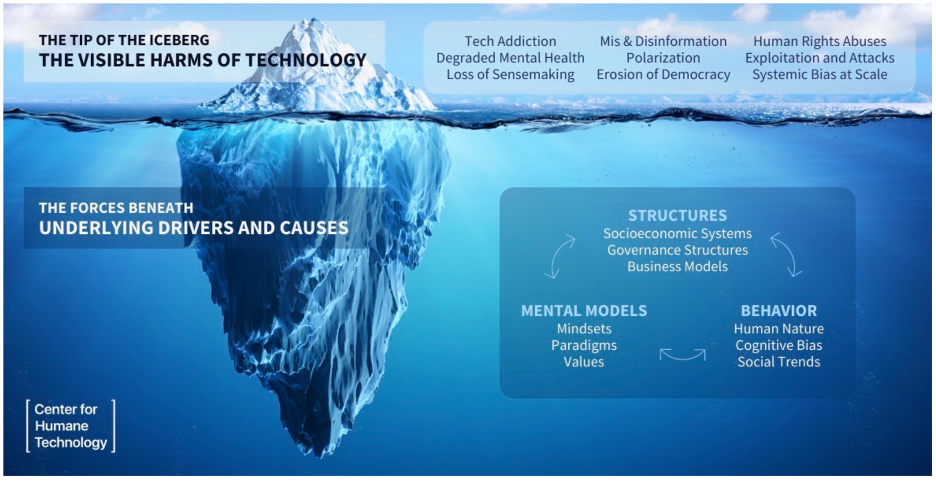It’s official now, the media tells us. Crypto has arrived because crypto has finally had its Super Bowl moment.
Coinbase, FTX, eToro, Crypto.com, and Bitbuy got in on the crypto action. Binance chirped from the sidelines. Even TurboTax got involved. Coinbase’s ad was so successful that Coinbase had to throttle the traffic or risk a server crash.
Sports stars were a big part of this crypto moment too, with LeBron James, Tom Brady, Jimmy Butler, and Kyle Lowry all making an appearance.
NFTs made a big appearance in the Super Bowl as well. The NFL issued NFTs to all ticket holders, which included their section, row, and seat. Nouns.wtf, a Decentralized Autonomous Organization (DAO) focused on NFTs, got a pair of its minted NFT eyeglasses into the Bud Light NEXT ad. Snoop Dogg, a huge advocate of NFTs, headlined the Pepsi Halftime Show.
So, is this it? Have we arrived? Is this the new decentralized utopia we’ve all been longing for?
I wish that I could join in all the celebrations, but I can’t. Far from a new and better world, what I saw was the same old media, marketing, and corporate playbook that got us into the mess we’re in already. What I saw was Bitcoin, crypto, and NFTs being coopted by the same old resource extraction business model that Bitcoin was created to undermine and ultimately overthrow.
- Coinbase played the “free stuff” game by offering $5 in free Bitcoin along with a lottery ticket campaign for $1M in Bitcoin to 3 lucky winners.
- FTX played the FOMO game with Larry David playing the foil who always misses the “next big thing.”
- Prior to the Super Bowl, FTX brought us Tom Brady and Gisele Bündchen asking all their friends, “You in?” I guess if we get “in” FTX, we will be their friends too?
- Crypto.com paid Matt Damon and LeBron James to convince us we’ll be brave and bold if we join Crypto.com.
- eToro brought us some kind weird human-insect swarm that promised to take us “to the moon” and cameoed a shiba inu dog and a bored ape.
It’s all reward … with no risk. It’s all soooo easy. You get such incredible benefits without even doing anything but signing up! You just can’t lose, and you’re an uncool fool if you don’t join the swarm.
Folks, this is not DeFi. This is not decentralization. This is not moving power from the center to the edges.
This is pure greed and fear brought to us by celebrities, memes, and free stuff, all in the name of more centralization of power. This is lying, pure and simple. It’s nonsense – it literally makes no sense.
If you are “in” with Tom and Gisele and FTX, you are not guaranteed anything. Only Tom, Gisele, and FTX are guaranteed something. You will not be any braver if you listen to Matt Damon and go to Crypto.com. You will not go “to the moon” if you join the eToro human-insect swarm.
The only thing that makes more sense to me now is why. As I wrote about in the last newsletter, Ken Griffin and Citadel Securities are getting into crypto. Hint: It has nothing to do with your personal prosperity or well-being.
All of these firms are in the resource extraction business – only the resources that they’re extracting are from people rather than from the earth. To them, we’re not much more than livestock.
I was happy to see this week that the Center for Humane Technology, the folks who put out The Social Dilemma documentary, are also using the concept of extraction in their conversations about technology.
They put out a wonderful newsletter last week highlighting “extractive technology” and included this very important graphic:

As with many of the risks we face in navigating our world, the risks we spend the most time focusing on are often just the tip of the iceberg. We’ve talked a lot in these pages about things like tech addiction, polarization, and systemic bias at scale. These are all real and profound issues, but they are merely symptoms rather than the underlying systemic disease.
That’s what I love about what this graphic illustrates. It shows that underneath the surface-level visible harms, there is a system consisting of structures, mental models, and behaviors.
We’re still living with structures that we’ve inherited from the industrial era when everything became highly centralized with a constant focus on efficiency and one-size-fits-all mass production. Those structures still drive capital formation, governance, and business models today.
Our mental models are in need of an overhaul as well. What exactly is our definition of success? Is Coinbase’s ad a success because it nearly crashed Coinbase’s servers? Are “buzz” and “virality” our definitions of success? Is treating people as objects to manipulate a paradigm that we want to encourage?
When we examine an event through this “underlying systems” lens, we can easily predict what kind of outcomes are likely to follow from the event.
I predict that the crypto ad blitz that we’ve seen in and around the Super Bowl will produce more addiction and polarization, increase mis- and dis- information, and degrade mental health and democracy.
Frankly, it’s terrifying. I have been an advocate for crypto. I have invested in crypto, and now, rather than celebrating the “arrival” of crypto, I’m shocked and sobered by how quickly the whole thing risks being coopted by the basest impulses of our fear- and greed-driven pop culture.
Do you know why so many sports stars are being drawn into the crypto marketing world? Because the whole “arrival of crypto and Web3” is coinciding with the legalization of sports betting.
In an excellent piece in The Wall Street Journal, Christopher Mims makes a compelling case that “NFTs, cryptocurrencies and Web3 are multilevel marketing schemes for a new generation.”
For the record, I don’t believe that, but I do believe that these technologies are increasingly in danger of being coopted into a multilevel marketing scheme IF WE LET THEM.
Mims makes the point that, “Web3 represents a way to financialize every possible human interaction.”
In my last newsletter I had highlighted this same message from a piece in The Atlantic, where the author said that with Web3, “the wealth seeking is printed on the tin.”
It’s true! And it isn’t necessarily a bad thing, but it could easily become a very bad thing.
I believe in markets and market forces as legitimate tools for price discovery and allocation decisions. I draw the line, however, when “market forces” become an excuse for abdicating personal responsibility.
I’m tempted to ask the question, “Do we really want to live in a world where everything is a bet?” The only reason I won’t ask it is because I know that we already are living in that world.
I’ve been talking about it for a long time. That’s the world that Google, Facebook, and others have created. It’s the world of surveillance capitalism.
I get it that Web3 allows more of us to get a piece of that bettor’s pie, but is that really the answer to our problems? Do we all really just want to be mini-Zuckerbergs?
No thanks! We can do better than that. That’s not the revolution that we need. We don’t need a Super Bowl ad blitz of free stuff, FOMO, and celebrity worship. We do need new business models, governance structures, mindsets, values, and behaviors.
I’ll wrap this up by once again bringing your attention to the Marshall McLuhan of our day, Ben Hunt, and his Epsilon Theory service. Back in September of 2021, Ben posted a piece on The Green Protocol: A New Vision for Crypto, Pt 2.
The piece is a brilliant (but formidable) read. You should definitely set aside an hour to study it if you’re interested in a vision of the kinds of structural, mental, and behavioral changes that would really produce some serious DeFi change.
For our purposes today, however, I just want to highlight one paragraph:
“Within five years, I believe that almost every form of organized social behavior will be fully abstracted into a speculation layer made up of 1) objects: a set of symbols representing real world entities formerly at the heart of those organized behaviors, 2) protocols: a government-sanctioned and oligarchy-established set of rules for a virtual betting market in those symbols, and 3) tokens: a similarly sanctioned and established set of casino chips providing liquidity for the betting market in those symbols.”
Most people in markets today have little idea of what the companies in which they’re investing actually do. Instead, they’re betting (speculating) on a set of symbols on sanctioned and regulated stock exchanges using a fiat currency, like the US dollar.
With the advent of sports betting upon us, we’re on the verge of losing sight of the underlying human drama that is the very reason why many of us love sports in the first place. If you watched the Super Bowl, there was some serious human drama this year! The sheer will of the trio of Stafford, Kupp, and Donald to win that game was high drama of the best kind.
With the coming sports-betting “speculation layer,” however, we’re more likely to be focused on the bets than on the people. Bloomberg Businessweek had a great cover the week of the Super Bowl.

We can’t allow the speculation layer to become something that obscures our underlying humanity. We can’t lose sight of the “real world entities formerly at the heart of those organized behaviors.” We can’t lose sight of the people.
As far as I’m concerned, all of the companies that participated in this super crypto heist have effectively disqualified themselves from being part of any possible revolution. At this point I’m confident in saying that if you see it on TV, it’s almost guaranteed to be an anti-revolution. Gil Scott-Heron said it much better than I ever will, “The revolution will not be televised.”
I recognize that I’m taking a hard position here, but it’s only a reflection of how deeply I care about our collective future. I desperately want decentralization to succeed. I desperately want digital privacy and sovereignty.
I love the promise of Bitcoin, crypto and Web3, but in the end, they are just technologies. They are tools. Tools don’t solve problems alone. People solve problems. People are more important than tools. People are not tools.
Until we start examining and addressing the underlying systemic issues that are driving today’s digital technology challenges, promising new technologies will continue to be coopted by antiquated systems.
We need to start putting people first. We need to use these new technologies to create better outcomes for real people. We need to allocate capital and attention to companies that are doing just that.
